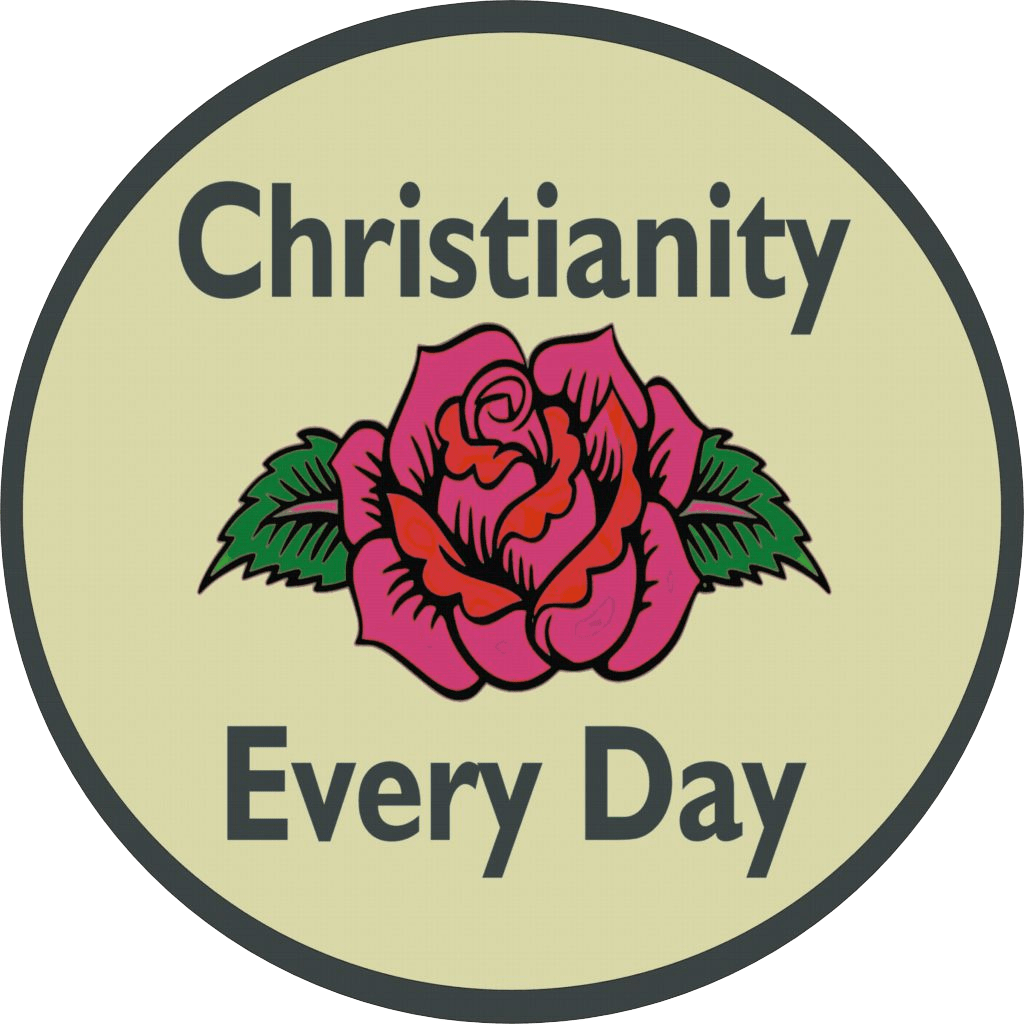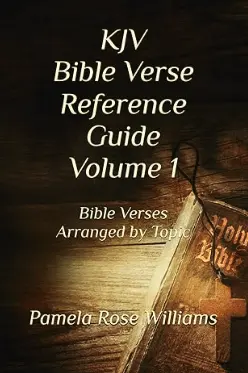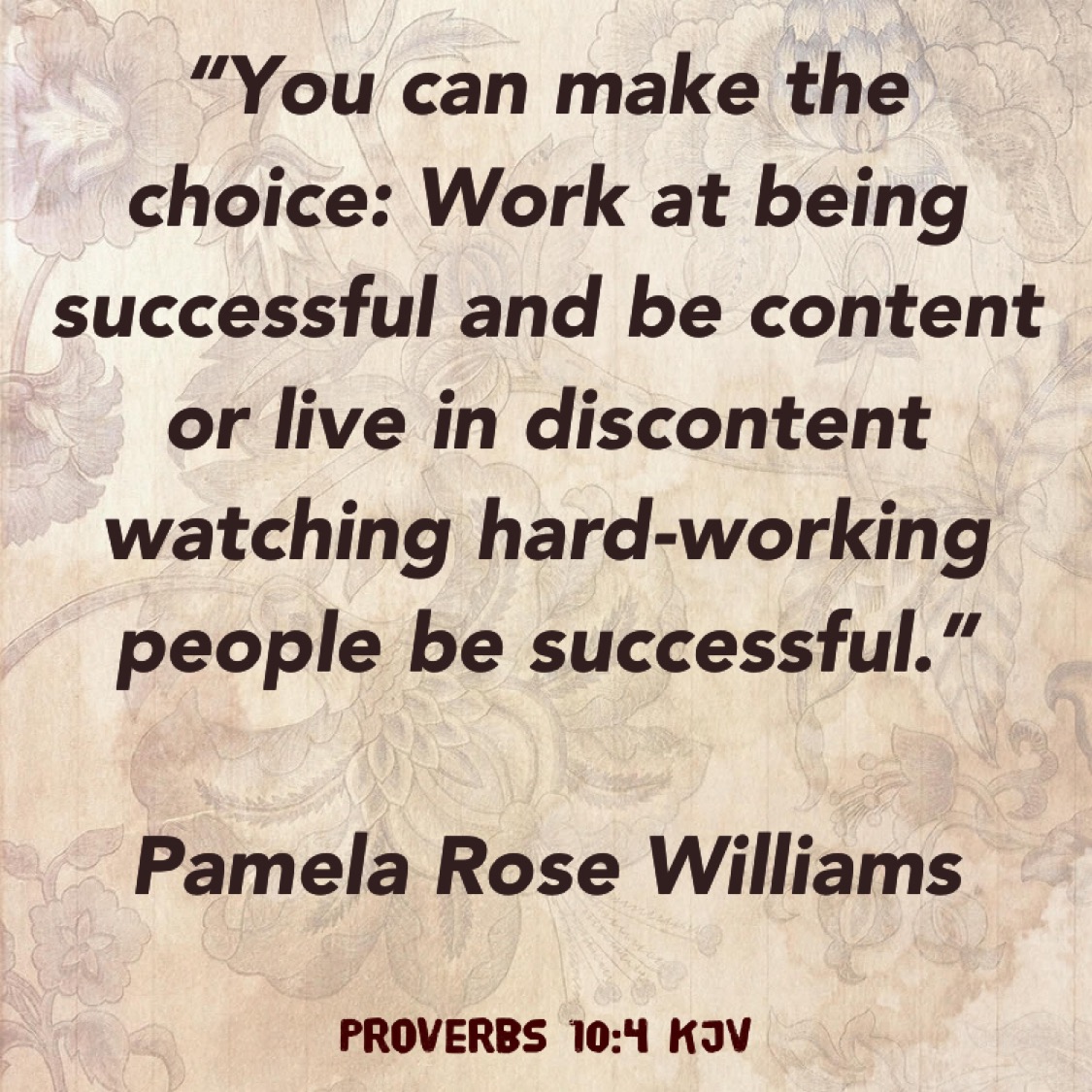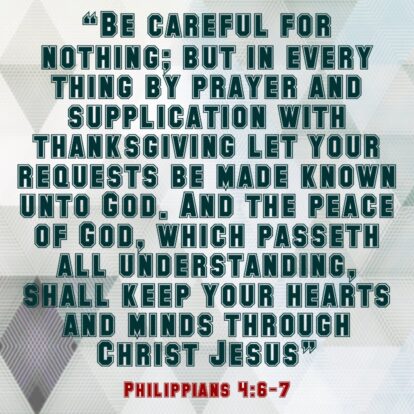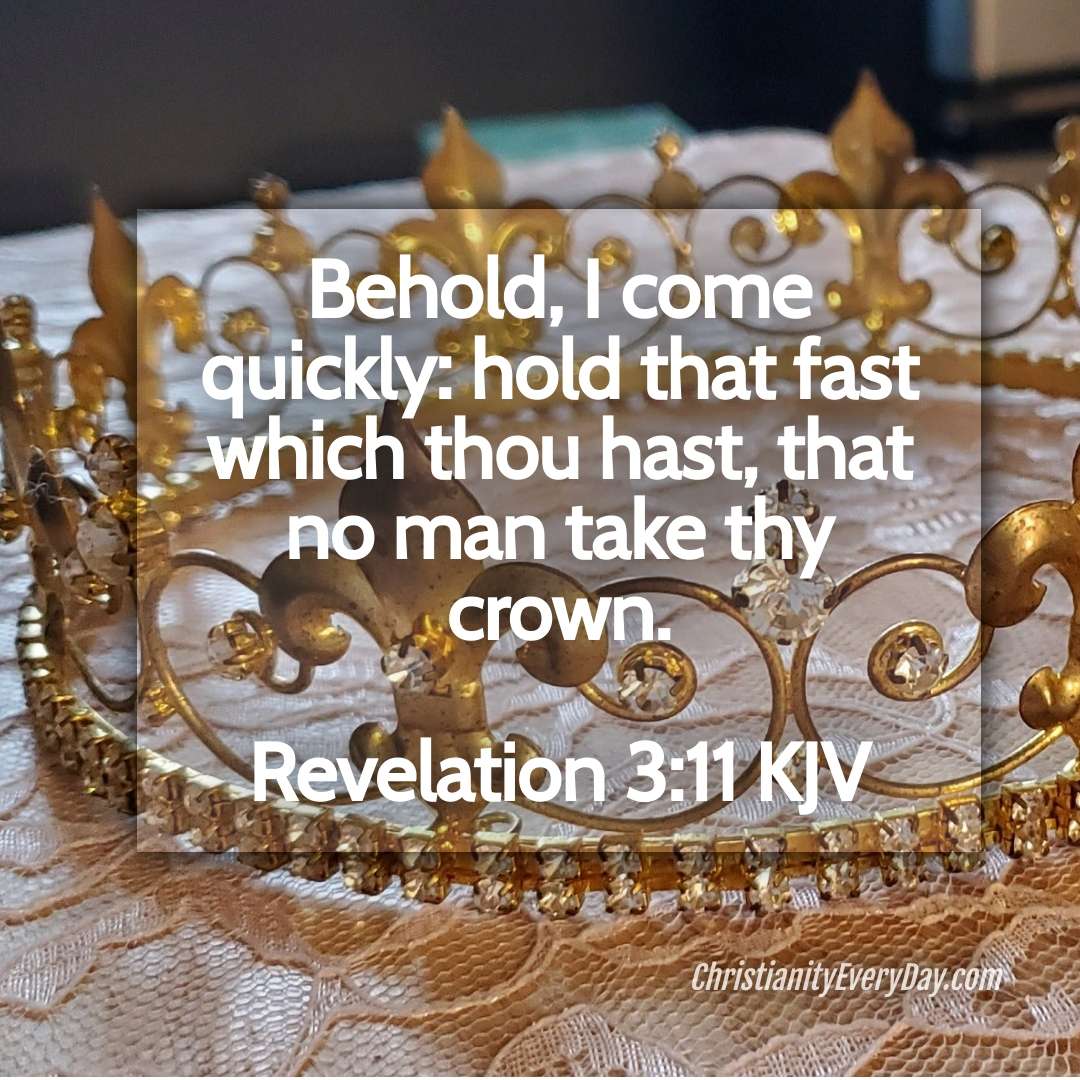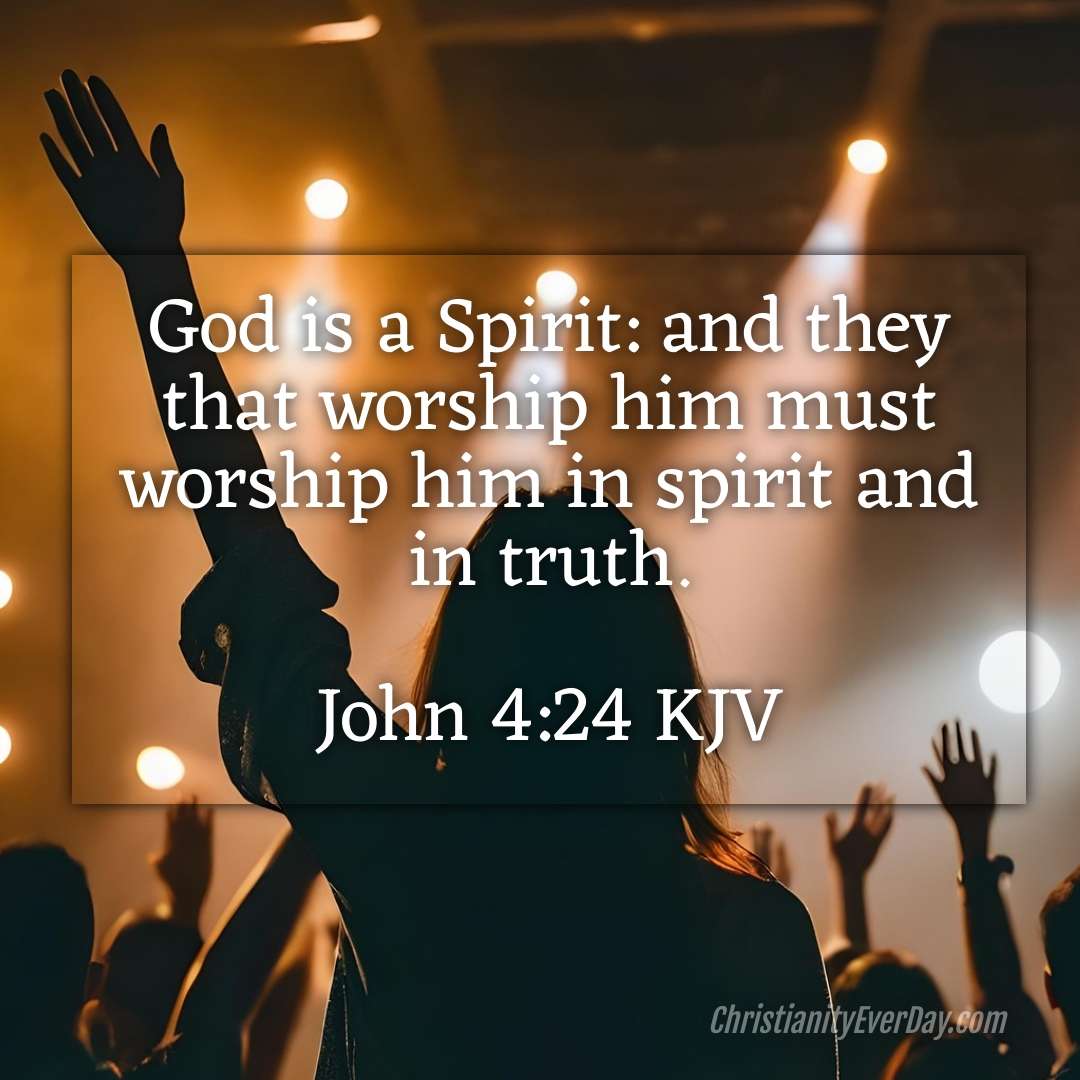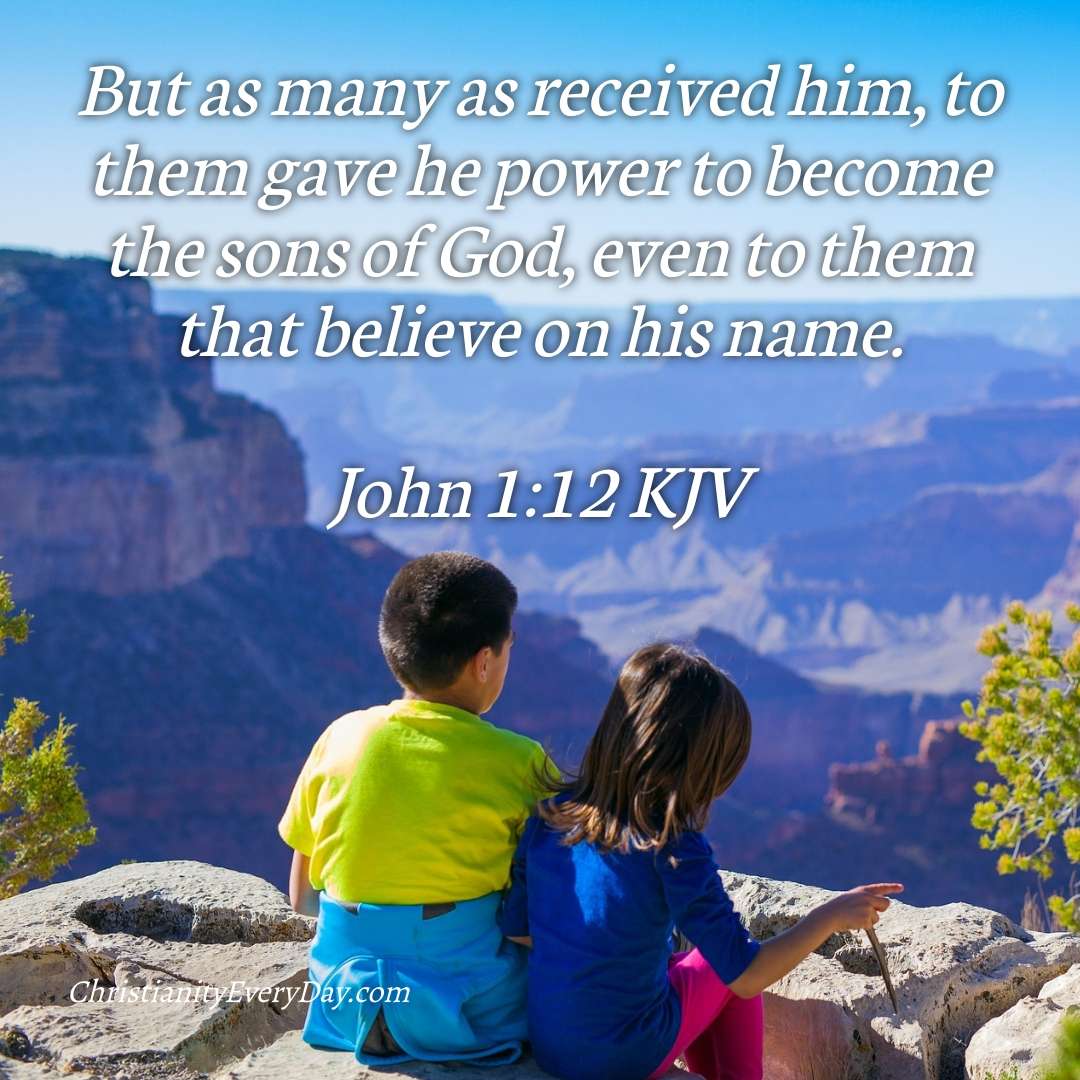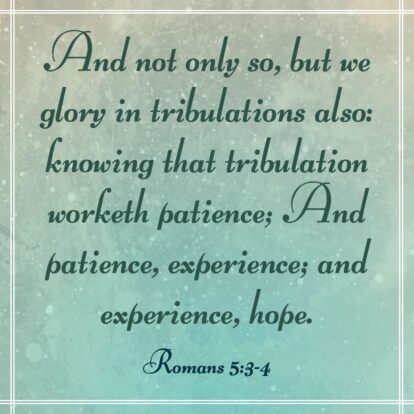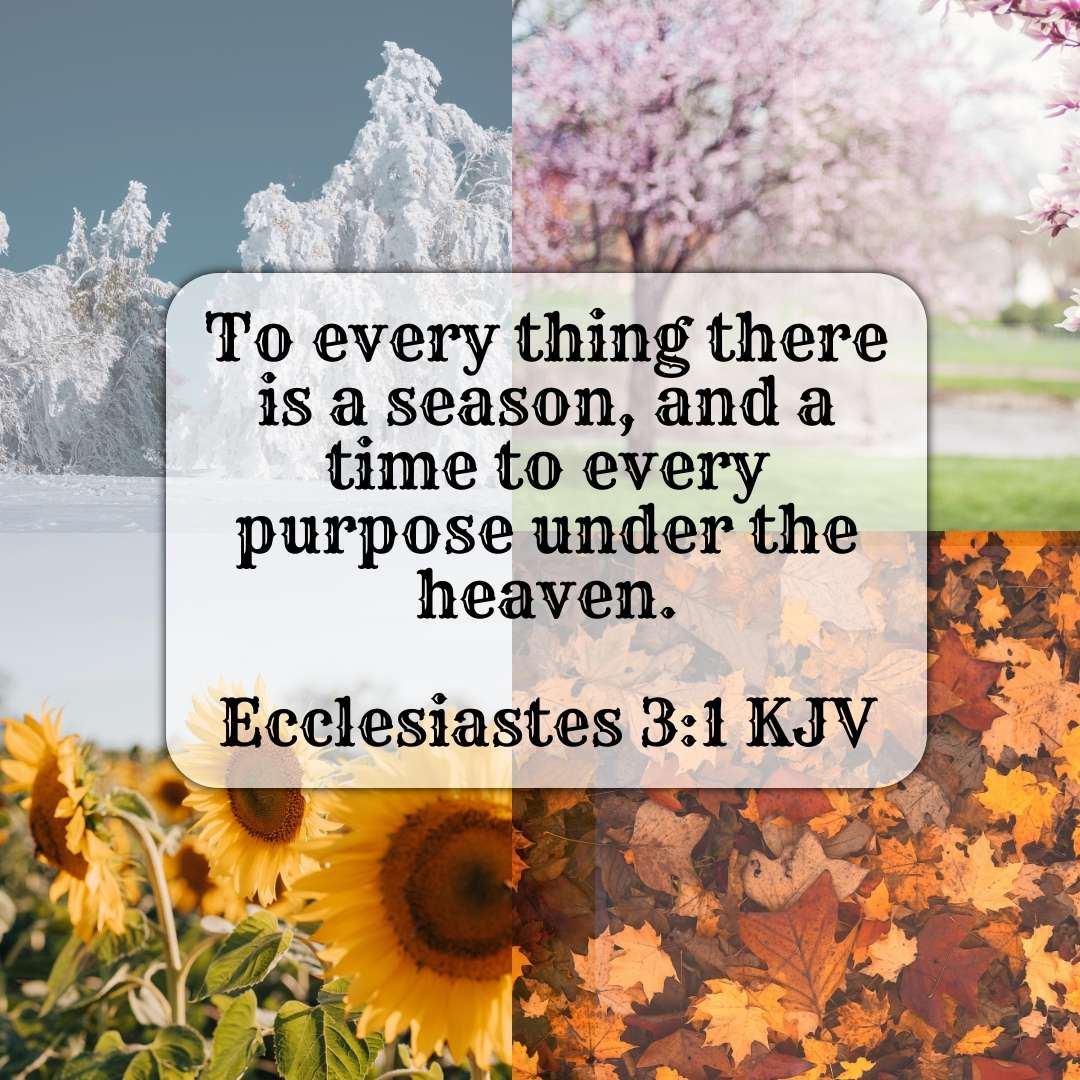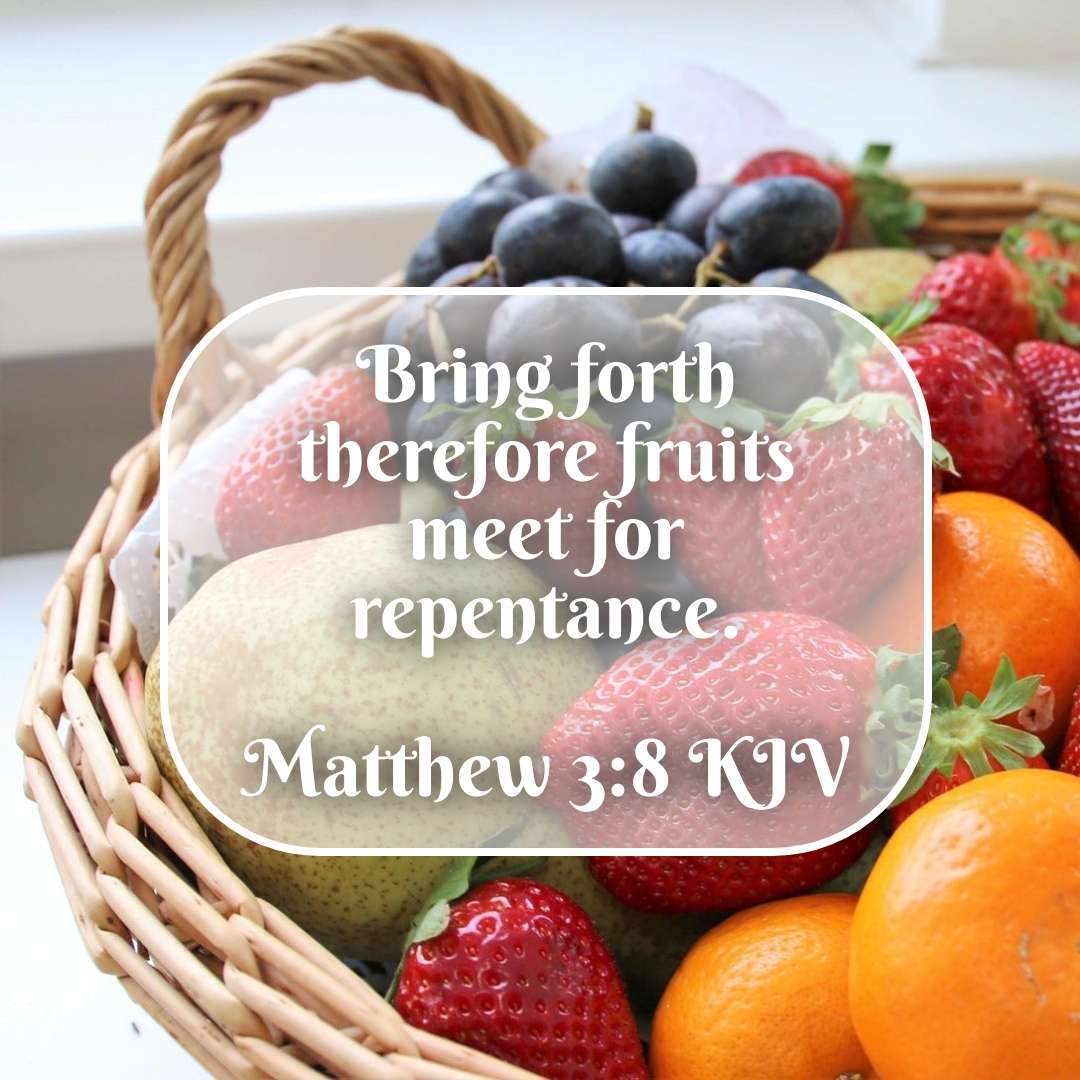How does God say to make good decisions and grow in life?
Every one of us from the day we are born have to make decisions in life. Some decisions are good and help us to grow positively in our life. Others are not so good and hurt us with negative growth in our life. How does God say to make good decisions and grow in life to prepare us for eternity?
Introduction: The following is an in-depth study based on many years of using God’s Word, our Bible, to counsel people that have experienced difficulty in making good decisions in their life. Their bad decisions have often led to bad impacts on their lives and the lives of others. In many of these cases they faced severe consequences, to include prison sentences. Upon request, many were ordered by the courts to receive this counseling before starting their prison sentences. This helped them to begin their rehabilitation as inmates and learn how to make good decisions in the future. It is our prayer that what you learn here serves as a good study to help you discover how does God say to make good decisions in life. May God bless you in your study and do not hesitate to reach out to us in the comments or by email.
Good decisions are about making good choices
When Jesus taught us how to pray the Lord’s Prayer, He covered several topics (Matthew 6). He taught us about praying to God in Heaven and hallowing, or making holy, His name. He taught us about the coming kingdom; His provision of daily bread; and how to manage debt. But, one of the things He also taught us was when it comes to making decisions how to avoid the temptation to make bad or sinful choices as follows:
Matthew 6:13. “And lead us not into temptation, but deliver us from evil: For thine is the kingdom, and the power, and the glory, for ever. Amen.”
Matthew 6:22-24. “The light of the body is the eye: if therefore thine eye be single, thy whole body shall be full of light. 23 But if thine eye be evil, thy whole body shall be full of darkness. If therefore the light that is in thee be darkness, how great is that darkness! 24 No man can serve two masters: for either he will hate the one, and love the other; or else he will hold to the one, and despise the other. Ye cannot serve God and mammon.”
In Matthew 6:22-24 Jesus explained in practical terms how what we see with our eyes can lead us into temptation to make wrong choices. This is important to know because we are also told that one of the things that tempts us to sin is known as the lust of the eyes. We see this as follows:
1 John 2:15-17. “Love not the world, neither the things that are in the world. If any man love the world, the love of the Father is not in him. 16 For all that is in the world, the lust of the flesh, and the lust of the eyes, and the pride of life, is not of the Father, but is of the world. 17 And the world passeth away, and the lust thereof: but he that doeth the will of God abideth for ever.”
We must make good decisions to grow from a Godly perspective
What we see in Matthew 6:22-24 is that the light of the body is the eye. This means that what we see can affect our perspective of what is or is not true in the world and influences the choices we make. If we focus on seeing the universal truth and “enlightenment” in God’s Word, it illuminates everything we see from God’s perspective. However, if we focus only on seeing truth and “enlightenment” based on our own beliefs and experiences, it darkens and hides everything we see that is outside of our own limited and opinionated perspective.
For example, to say our own personal standard of truth should be based on our own experiences sets us up for a rude awakening when we encounter a situation outside our limited knowledge and experience. So then, the questions become, what standard of truth can apply to everyone in every situation? And how do we decide what that standard is when making decisions if we base our decisions on what feels right? And how do we really know what feels right when our feelings are influenced by our own man-made lusts of our flesh, lusts of our eyes, and our own prideful opinions as we just saw in 1 John 2:15-17?
This leaves us with only an unenlightened vision to make decisions based on what we think is the truth. This limits decision making to be based on the signs of what feels good, looks good, and how it impacts what others think of us. There is no light and Wisdom from God. In other words, we are left in the darkness of our own limited thinking to make good decisions.
The risk of making decisions to grow based on our own understanding
What did Jesus publicly experience that He used as an example to teach about the dangers of seeking personal signs and not the truth of God when it comes to our decisions? In Luke 11:14-26, Jesus encountered a man that was possessed by a demon and He cast out that demon. His critics demanded He provide a sign that what He did was of God. He explained how when God is involved, if the man is delivered from the demon by God: that demon or other demons cannot return and repossess that man. He clarified this by explaining how those that do not have God’s Holy Spirit in them to guide and protect them are continually vulnerable to demonic influences. This is because they are relying on their own understanding and not God’s. We are warned against this as follows:
Proverbs 3:5-8. “Trust in the LORD with all thine heart; and lean not unto thine own understanding. 6 In all thy ways acknowledge him, and he shall direct thy paths. 7 Be not wise in thine own eyes: fear the LORD, and depart from evil. 8 It shall be health to thy navel, and marrow to thy bones.”
Jesus explained to them that if a demon is cast out by God, it cannot return because the Holy Spirit, enlightens the man and provides the power of God for strength and protection. Therefore, those demanding a miraculous sign to be convinced what they see is real are doing so because they do not have the Holy Spirit to enlighten them. Nor do they have the Holy Spirit to strengthen and protect them.
Even good parents should teach God’s truth
During these events Jesus responded to an explicitly worded compliment from a woman in the crowd blessing His mother and how she raised Him. He acknowledged what she said about being blessed by how He was raised. But He also said they are better blessed if they hear the Word of God and keep it. This tells us that we may be raised by great parents, but what is better is if we are taught the Word of God and keep in mind what we learn from it. This is the same thinking many parents have that seek a Christian based education for their children:
Luke 11:27-28. “And it came to pass, as he spake these things, a certain woman of the company lifted up her voice, and said unto him, Blessed is the womb that bare thee, and the paps which thou hast sucked. 28 But he said, Yea rather, blessed are they that hear the word of God, and keep it.”
The only Good Sign
Not long after, when the crowd thickened, Jesus addressed those that were always seeking a sign. He described how Jonah, who had been in the belly of the whale three days and nights, was a sign to this generation. Jesus compared it to Himself saying in verse 32: “…behold, and greater than Jonas is here.”
What we know about the sign of Jonah is that Jesus fulfilled that sign when He spent three days and three nights in the center of the earth after His crucifixion (Matthew 12:39-41). Therefore, making decisions is not about waiting for random signs to supernaturally appear, it is about looking to the only “Good Sign” that fulfills the innumerable signs and prophecies of the Messiah, Jesus Christ, to guide our decisions. So, an enlightened sign is not what personal signs we use to identify truth, it is what God uses to identify truth and Jesus is our sign of truth for life as follows:
John 20:30-31. “And many other signs truly did Jesus in the presence of his disciples, which are not written in this book: 31 But these are written, that ye might believe that Jesus is the Christ, the Son of God; and that believing ye might have life through his name.”
Making good decisions requires enlightenment to grow
Jesus went on to further describe the light of the body, as mentioned earlier, being the eye in Matthew 6:22. He compared it to a candle that illuminates a room as follows:
Luke 11:33-36. “No man, when he hath lighted a candle, putteth it in a secret place, neither under a bushel, but on a candlestick, that they which come in may see the light. 34 The light of the body is the eye: therefore when thine eye is single, thy whole body also is full of light; but when thine eye is evil, thy body also is full of darkness. 35 Take heed therefore that the light which is in thee be not darkness. 36 If thy whole body therefore be full of light, having no part dark, the whole shall be full of light, as when the bright shining of a candle doth give thee light.”
What Jesus is describing is the light of the Gospel, or good news, about His death, burial, and resurrection for the sins of the world. He is saying that when He is crucified, and people trust that His death paid for their sins, it brings light into their lives. They begin to see things differently because they have a clear vision of the truth from God. This light, inside our bodies as believers, gives us enlightenment to the truth of God in our everyday lives and drives away darkness. We see this as follows:
2 Corinthians 4:3-6. “But if our gospel be hid, it is hid to them that are lost: 4 In whom the god of this world hath blinded the minds of them which believe not, lest the light of the glorious gospel of Christ, who is the image of God, should shine unto them. 5 For we preach not ourselves, but Christ Jesus the Lord; and ourselves your servants for Jesus’ sake. 6 For God, who commanded the light to shine out of darkness, hath shined in our hearts, to give the light of the knowledge of the glory of God in the face of Jesus Christ.“
2 Timothy 1:8-10. “Be not thou therefore ashamed of the testimony of our Lord, nor of me his prisoner: but be thou partaker of the afflictions of the gospel according to the power of God; 9 Who hath saved us, and called us with an holy calling, not according to our works, but according to his own purpose and grace, which was given us in Christ Jesus before the world began, 10 But is now made manifest by the appearing of our Saviour Jesus Christ, who hath abolished death, and hath brought life and immortality to light through the gospel.“
How are we enlightened to make good decisions to grow?
So, in this instance when Jesus says, “if our eye is single”, He is referring to our focus being on Him, our Saviour, the Word of God. He enlightens us so our whole body or life is full of light as He is the Word of God (John 1:1,14). When we make the Word of God the light of our life, it enlightens our thinking and the choices we make. Like a candle, the Word of God, our Bibles, illuminates our way so we can see clearly. It is His light, that is needed to make good decisions and grow in life and show us His truth through His Word (John 17:14-17).
If you would like to hear more about the light of the Lord, check out the following audio message:
Acts 9:1-22 Have you seen the Light?
How do we use God’s Word in our decisions to grow?
Now we have come to the practical application of what Jesus was teaching us. We start by making sure we are focused on being devoted to God’s truth in our life. We use His truth in how we judge and communicate right and wrong as follows:
Matthew 7:1-12. ”Judge not, that ye be not judged. 2 For with what judgment ye judge, ye shall be judged: and with what measure ye mete, it shall be measured to you again. 3 And why beholdest thou the mote that is in thy brother’s eye, but considerest not the beam that is in thine own eye? 4 Or how wilt thou say to thy brother, Let me pull out the mote out of thine eye; and, behold, a beam is in thine own eye? 5 Thou hypocrite, first cast out the beam out of thine own eye; and then shalt thou see clearly to cast out the mote out of thy brother’s eye. 6 Give not that which is holy unto the dogs, neither cast ye your pearls before swine, lest they trample them under their feet, and turn again and rend you. 7 Ask, and it shall be given you; seek, and ye shall find; knock, and it shall be opened unto you: 8 For every one that asketh receiveth; and he that seeketh findeth; and to him that knocketh it shall be opened. 9 Or what man is there of you, whom if his son ask bread, will he give him a stone? 10 Or if he ask a fish, will he give him a serpent? 11 If ye then, being evil, know how to give good gifts unto your children, how much more shall your Father which is in heaven give good things to them that ask him? 12 Therefore all things whatsoever ye would that men should do to you, do ye even so to them: for this is the law and the prophets.”
God tells us we must make judgments
We see that God is speaking about how we judge right and wrong and the decisions we make (verse 1-5). Sadly, many think God is telling us to never make judgments. They will quote verses one through four, that speak to us about not judging others and even refer to those that do it as hypocrites in verse five. However, few ever include the whole context of verse 5 that tells us:
Matthew 7:5. “Thou hypocrite, first cast out the beam out of thine own eye; and then shalt thou see clearly to cast out the mote out of thy brother’s eye.”
God is not telling us not to make judgments. He is telling us, before we do, we MUST make sure we seek God’s judgment in how we live our lives FIRST. This is why there is a high standard in courts of law when it comes to judges, so people trust their judgment is not tainted or wrong. Unfortunately, many of these same standards are no longer being upheld.
If we think about it, if there is no standard and God is telling us never to judge, then no one could ever say anything is right or wrong. Can you imagine how messed up the world would be if there was no standard of right and wrong? Then again, if we look at the world around us, it is becoming more common that there is a lot of judgment going on in the world. However, it is usually based on each individual’s standard of what they believe is right or wrong and applied to others.
If you would like to learn more about judgment on an individual basis and Godly basis, check out the following article and audio message:
How does judgment apply to us?
To make any judgments, we must personally start with self-examination to assure that our judgments are holy not seen as being hypocritical (verses 1-5). Being hypocritical distracts people away from God’s truth as they think those lecturing them on things they should or should not do when they do not follow the same truth and lack self-judgment. Jesus tells us about maintaining holiness in verse 6 and asking for God’s help for provision and knowing good and evil (verses 7-12). So, God is basically telling us, before we give or take any advice, we need to make sure we are focused on doing what is right in our life by seeking His Wisdom to enlighten and guide us.
What should we do first when making decisions?
This now brings us to how God describes our decisions and choices overall as follows:
Matthew 7:13-14. “Enter ye in at the strait gate: for wide is the gate, and broad is the way, that leadeth to destruction, and many there be which go in thereat: 14 Because strait is the gate, and narrow is the way, which leadeth unto life, and few there be that find it.”
These verses serve as the starting point of making decisions. Jesus tells us to enter at the straight gate, which is narrow and leads to life, and few find it. He also tells us to avoid the wide gate which many people choose that leads to destruction. Jesus is giving us an illustration of those that make decisions based on God’s Word, the narrow gate, and those that make decisions based on the ways of the world, the wide gate. We must seek God’s leading and make our decisions based on what He says in His Word, our Bibles. We must also NOT make our decisions based on what is popular in the world, that contradicts His Word and appeals to worldly lusts of the flesh, lusts of the eyes, and pride (1 John 2:15-17).
What is the decision-making process?
Now we will examine a Decision Tree for using “God’s Word to make good decisions and experience positive growth in your life”. Note: If you would like to download a PDF copy for yourself, then click on the following link: The Decision Tree
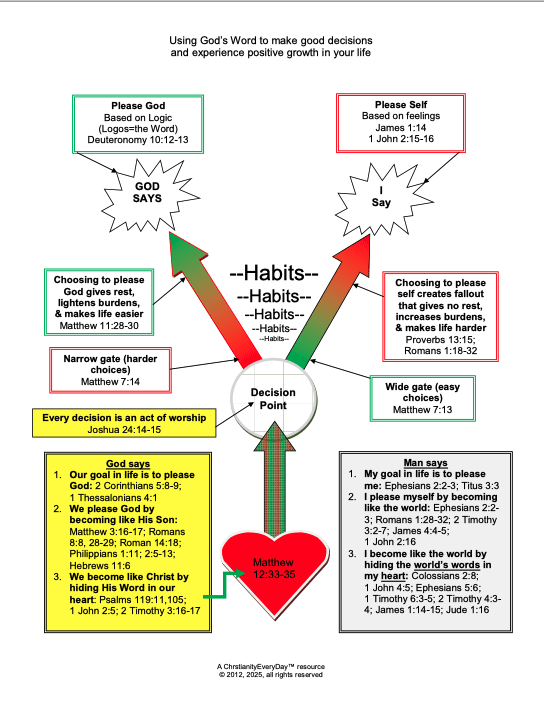
Decision point
We start by finding the circle in the middle of the decision tree that says, “Decision point”. The first step or point in making a decision is understanding that “Every decision is an act of worship.” We see this statement and reference to Biblical truth in the short yellow box to the left of the Decision Point as follows:
Joshua 24:14-15. “Now therefore fear the LORD, and serve him in sincerity and in truth: and put away the gods which your fathers served on the other side of the flood, and in Egypt; and serve ye the LORD. 15 And if it seem evil unto you to serve the LORD, choose you this day whom ye will serve; whether the gods which your fathers served that were on the other side of the flood, or the gods of the Amorites, in whose land ye dwell: but as for me and my house, we will serve the LORD.”
This “act of worship” in decision making means that we must put focus on serving and worshipping God first. We do this in sincerity and truth and put away ungodly allegiances and methods. If we are not comfortable with doing this, then we must make a choice. This why it says, “chose you this day whom you will serve…” in verse fifteen. Do we continue with ungodly reasons and advice: or do we “choose you this day” to serve God and HIS choices?
Making choices and living with the consequences
We see two arrows leading in two separate directions above the decision tree. These represents the directions we choose and consequences we experience once we have made a choice. We have one pointing to “GOD SAYS” and another one pointing to “I Say.” Each of these two have three things to consider with a summary as follows:
“God Says”: We see the following when it comes to what “God Says” at the tip of the arrow:
-
- Please God…: (In the green box on the top left above the “GOD SAYS” star) We see that our focus is to “Please God”. Pleasing God is “Based on Logic” of God’s Word, the Bible. It mentions “(Logos=the Word)” and it lists Deuteronomy 10:12-13 as a reference:
- Deuteronomy 10:12-13. “And now, Israel, what doth the LORD thy God require of thee, but to fear the LORD thy God, to walk in all his ways, and to love him, and to serve the LORD thy God with all thy heart and with all thy soul, 13 To keep the commandments of the LORD, and his statutes, which I command thee this day for thy good?”
- For more on how “Logos = the Word” is logical read the article: Is there anything logical about the Bible?
- Please God…: (In the green box on the top left above the “GOD SAYS” star) We see that our focus is to “Please God”. Pleasing God is “Based on Logic” of God’s Word, the Bible. It mentions “(Logos=the Word)” and it lists Deuteronomy 10:12-13 as a reference:
-
- Choosing to please God: (In green box to the left of the green arrowhead pointing to “GOD SAYS”) “Choosing to please God gives us rest, lightens burdens, & makes life easier.” It lists Matthew 11:28-30 as a reference:
- Matthew 11:28-30. “Come unto me, all ye that labour and are heavy laden, and I will give you rest. 29 Take my yoke upon you, and learn of me; for I am meek and lowly in heart: and ye shall find rest unto your souls. 30 For my yoke is easy, and my burden is light.”
- Choosing to please God: (In green box to the left of the green arrowhead pointing to “GOD SAYS”) “Choosing to please God gives us rest, lightens burdens, & makes life easier.” It lists Matthew 11:28-30 as a reference:
-
- Narrow gate (harder choices): (In red box to the left of the red bottom of the arrow pointing to “GOD SAYS”). It lists Matthew 7:14 as a reference referring to the narrow gate we saw earlier as follows:
- Matthew 7:14 “Because strait is the gate, and narrow is the way, which leadeth unto life, and few there be that find it.”
- Narrow gate (harder choices): (In red box to the left of the red bottom of the arrow pointing to “GOD SAYS”). It lists Matthew 7:14 as a reference referring to the narrow gate we saw earlier as follows:
-
- Summary of God says: We see these three points with the inclusion of red and green colors in each area.
- The arrow from the Decision Point starts out as red and slowly changes to green as we draw closer to pleasing God. This illustrates in red how as we start to make choices to please God, they start out hard. Then, with time and practice as we see we draw closer to God, our path turns to green as life and Biblically based decisions get easier.
- The harder red “Narrow gate (harder choices)” box is near the harder red end base of the arrow where we first start our decision.
- The easier green “Choosing to Please God” results box is near the easier green end tip of the arrow where we end up when we carry out our efforts in pleasing of God.
- Summary of God says: We see these three points with the inclusion of red and green colors in each area.
“I Say”: We see the following when it comes to what “I Say:”
-
- Please Self: (In the red box on the top right above “I Say” star) We see that our focus is to “Please Self”. Pleasing self is “Based on feelings” driven by our worldly lusts and it lists James 1:14 and 1 John 2:15-16 as references:
- James 1:14. “But every man is tempted, when he is drawn away of his own lust, and enticed.”
- 1 John 2:15-16. “Love not the world, neither the things that are in the world. If any man love the world, the love of the Father is not in him. 16 For all that is in the world, the lust of the flesh, and the lust of the eyes, and the pride of life, is not of the Father, but is of the world.”
- Please Self: (In the red box on the top right above “I Say” star) We see that our focus is to “Please Self”. Pleasing self is “Based on feelings” driven by our worldly lusts and it lists James 1:14 and 1 John 2:15-16 as references:
-
- Choosing to please self: (In red box to the right of the red tip of the arrow pointing to “I Say”) Choosing to “please self” creates fallout (problems) that give us no rest, increases burdens, and makes life harder. It lists Proverbs 13:15 and Romans 1:18-32 as a references:
- Proverbs 13:15. “Good understanding giveth favour: but the way of transgressors is hard.”
- Romans 1:18-32. “For the wrath of God is revealed from heaven against all ungodliness and unrighteousness of men, who hold the truth in unrighteousness; 19 Because that which may be known of God is manifest in them; for God hath shewed it unto them. 20 For the invisible things of him from the creation of the world are clearly seen, being understood by the things that are made, even his eternal power and Godhead; so that they are without excuse: 21 Because that, when they knew God, they glorified him not as God, neither were thankful; but became vain in their imaginations, and their foolish heart was darkened. 22 Professing themselves to be wise, they became fools, 23 And changed the glory of the uncorruptible God into an image made like to corruptible man, and to birds, and fourfooted beasts, and creeping things.
24 Wherefore God also gave them up to uncleanness through the lusts of their own hearts, to dishonour their own bodies between themselves: 25 Who changed the truth of God into a lie, and worshipped and served the creature more than the Creator, who is blessed for ever. Amen.
26 For this cause God gave them up unto vile affections: for even their women did change the natural use into that which is against nature: 27 And likewise also the men, leaving the natural use of the woman, burned in their lust one toward another; men with men working that which is unseemly, and receiving in themselves that recompence of their error which was meet.
28 And even as they did not like to retain God in their knowledge, God gave them over to a reprobate mind, to do those things which are not convenient; 29 Being filled with all unrighteousness, fornication, wickedness, covetousness, maliciousness; full of envy, murder, debate, deceit, malignity; whisperers, 30 Backbiters, haters of God, despiteful, proud, boasters, inventors of evil things, disobedient to parents, 31 Without understanding, covenantbreakers, without natural affection, implacable, unmerciful: 32 Who knowing the judgment of God, that they which commit such things are worthy of death, not only do the same, but have pleasure in them that do them.”
- Choosing to please self: (In red box to the right of the red tip of the arrow pointing to “I Say”) Choosing to “please self” creates fallout (problems) that give us no rest, increases burdens, and makes life harder. It lists Proverbs 13:15 and Romans 1:18-32 as a references:
-
- Wide gate (easy choices): (In green box to the right of the green bottom of the arrow pointing to “I Say”). It lists Matthew 7:13 referring to the wide gate we saw earlier as follows:
- Matthew 7:13. “Enter ye in at the strait gate: for wide is the gate, and broad is the way, that leadeth to destruction, and many there be which go in there.”
- Wide gate (easy choices): (In green box to the right of the green bottom of the arrow pointing to “I Say”). It lists Matthew 7:13 referring to the wide gate we saw earlier as follows:
-
- Summary of I Say: We see these three points with the inclusion of red and green colors in each area.
- The arrow from the Decision Point starts out as green and slowly changes to red as we draw closer to pleasing self. This illustrates in green how as we start to make choices to please self, they start out easy. Then, with time and practice as we see the bad results our selfish choices and rejecting God, our path turns to red as life gets harder
- The easier green “Wide gate easy choices” box is near the easier green base end of the arrow
- The harder red “Choosing to Please self”, results box is near the harder red end tip of the arrow.
- Summary of I Say: We see these three points with the inclusion of red and green colors in each area.
How do we change our own decision tree?
We make good decisions by changing our heart
The key to all or our decisions are based on what is in our heart. We see this referenced in the red heart at the bottom of our decision tree. Our heart contains the roots that feed the tree. We see how this works in Matthew 12:33-35 as follows:
Matthew 12;33-35. “Either make the tree good, and his fruit good; or else make the tree corrupt, and his fruit corrupt: for the tree is known by his fruit. 34 O generation of vipers, how can ye, being evil, speak good things? for out of the abundance of the heart the mouth speaketh. 35 A good man out of the good treasure of the heart bringeth forth good things: and an evil man out of the evil treasure bringeth forth evil things.
We change our heart by changing what we feed it
Like any plant, the roots must be fed healthy nutrients so that the tree grows to be healthy and mature. This means we wash our heart with the pure water of the Word, and we feed our heart with the bread of life, Jesus Christ (Ephesians 5:25-26; John 6:49-51). This helps us to grow new roots that lead us to make Godly fruit-bearing decisions. There are three aspects comparing what Man Says and what God Says and how we change from pleasing self to pleasing God as follows:
Man says. (See the gray box to the right of the heart)
-
- My goal in life is to please me
- Ephesians 2:2-3. “Wherein in time past ye walked according to the course of this world, according to the prince of the power of the air, the spirit that now worketh in the children of disobedience: 3 Among whom also we all had our conversation in times past in the lusts of our flesh, fulfilling the desires of the flesh and of the mind; and were by nature the children of wrath, even as others.”
- Titus 3:3. “For we ourselves also were sometimes foolish, disobedient, deceived, serving divers lusts and pleasures, living in malice and envy, hateful, and hating one another.”
- My goal in life is to please me
-
- I please myself by becoming like the world
- See Ephesians 2:2-3 above
- Romans 1:28-32. “And even as they did not like to retain God in their knowledge, God gave them over to a reprobate mind, to do those things which are not convenient; 29 Being filled with all unrighteousness, fornication, wickedness, covetousness, maliciousness; full of envy, murder, debate, deceit, malignity; whisperers, 30 Backbiters, haters of God, despiteful, proud, boasters, inventors of evil things, disobedient to parents, 31 Without understanding, covenantbreakers, without natural affection, implacable, unmerciful: 32 Who knowing the judgment of God, that they which commit such things are worthy of death, not only do the same, but have pleasure in them that do them.”
- 2 Timothy 3:2-7. “For men shall be lovers of their own selves, covetous, boasters, proud, blasphemers, disobedient to parents, unthankful, unholy, 3 Without natural affection, trucebreakers, false accusers, incontinent, fierce, despisers of those that are good, 4 Traitors, heady, highminded, lovers of pleasures more than lovers of God; 5 Having a form of godliness, but denying the power thereof: from such turn away. 6 For of this sort are they which creep into houses, and lead captive silly women laden with sins, led away with divers lusts, 7 Ever learning, and never able to come to the knowledge of the truth.”
- James 4:4-5. “Ye adulterers and adulteresses, know ye not that the friendship of the world is enmity with God? whosoever therefore will be a friend of the world is the enemy of God. 5 Do ye think that the scripture saith in vain, The spirit that dwelleth in us lusteth to envy?”
- 1 John 2:16. “For all that is in the world, the lust of the flesh, and the lust of the eyes, and the pride of life, is not of the Father, but is of the world.”
- I please myself by becoming like the world
-
- I become like the world by hiding the world’s words in my heart
- Colossians 2:8. “Beware lest any man spoil you through philosophy and vain deceit, after the tradition of men, after the rudiments of the world, and not after Christ.”
- 1 John 4:5. “They are of the world: therefore speak they of the world, and the world heareth them.”
- Ephesians 5:6. “For this ye know, that no whoremonger, nor unclean person, nor covetous man, who is an idolater, hath any inheritance in the kingdom of Christ and of God.”
- 1 Timothy 6:3-5. “If any man teach otherwise, and consent not to wholesome words, even the words of our Lord Jesus Christ, and to the doctrine which is according to godliness; 4 He is proud, knowing nothing, but doting about questions and strifes of words, whereof cometh envy, strife, railings, evil surmisings, 5 Perverse disputings of men of corrupt minds, and destitute of the truth, supposing that gain is godliness: from such withdraw thyself.”
- 2 Timothy 4:3-4. “For the time will come when they will not endure sound doctrine; but after their own lusts shall they heap to themselves teachers, having itching ears; 4 And they shall turn away their ears from the truth, and shall be turned unto fables.”
- James 1:14-15. “But every man is tempted, when he is drawn away of his own lust, and enticed. 15 Then when lust hath conceived, it bringeth forth sin: and sin, when it is finished, bringeth forth death.”
- Jude 1:16. “These are murmurers, complainers, walking after their own lusts; and their mouth speaketh great swelling words, having men’s persons in admiration because of advantage.”
- I become like the world by hiding the world’s words in my heart
God Says (See the tall yellow box to the left of the heart)
-
- My Goal in life is to please God
- 2 Corinthians 5:8-9. We are confident, I say, and willing rather to be absent from the body, and to be present with the Lord.
9 Wherefore we labour, that, whether present or absent, we may be accepted of him.” - 1 Thessalonians 4:1. “Furthermore then we beseech you, brethren, and exhort you by the Lord Jesus, that as ye have received of us how ye ought to walk and to please God, so ye would abound more and more.”
- 2 Corinthians 5:8-9. We are confident, I say, and willing rather to be absent from the body, and to be present with the Lord.
- My Goal in life is to please God
-
- We please God by becoming like His Son
- Matthew 3:16-17. “And Jesus, when he was baptized, went up straightway out of the water: and, lo, the heavens were opened unto him, and he saw the Spirit of God descending like a dove, and lighting upon him: 17 And lo a voice from heaven, saying, This is my beloved Son, in whom I am well pleased.”
- Romans 8:8, 28-29. “So then they that are in the flesh cannot please God.” 28 “And we know that all things work together for good to them that love God, to them who are the called according to his purpose. 29 For whom he did foreknow, he also did predestinate to be conformed to the image of his Son, that he might be the firstborn among many brethren.”
- Romans 14:18. “For he that in these things serveth Christ is acceptable to God, and approved of men.”
- Philippians 1:11. “Being filled with the fruits of righteousness, which are by Jesus Christ, unto the glory and praise of God.”
- Philippians 2:5-13. “Let this mind be in you, which was also in Christ Jesus: 6 Who, being in the form of God, thought it not robbery to be equal with God: 7 But made himself of no reputation, and took upon him the form of a servant, and was made in the likeness of men: 8 And being found in fashion as a man, he humbled himself, and became obedient unto death, even the death of the cross. 9 Wherefore God also hath highly exalted him, and given him a name which is above every name: 10 That at the name of Jesus every knee should bow, of things in heaven, and things in earth, and things under the earth; 11 And that every tongue should confess that Jesus Christ is Lord, to the glory of God the Father.
12 Wherefore, my beloved, as ye have always obeyed, not as in my presence only, but now much more in my absence, work out your own salvation with fear and trembling. 13 For it is God which worketh in you both to will and to do of his good pleasure.” - Hebrews 11:6. “But without faith it is impossible to please him: for he that cometh to God must believe that he is, and that he is a rewarder of them that diligently seek him.”
- We please God by becoming like His Son
-
- We become like Christ by hiding His Word in our heart
- Psalms 119:11. “Thy word have I hid in mine heart, that I might not sin against thee.”
- Psalms 119:105. “Thy word is a lamp unto my feet, and a light unto my path.”
- 1 John 2:5. “But whoso keepeth his word, in him verily is the love of God perfected: hereby know we that we are in him.”
- 2 Timothy 3:16-17. “All scripture is given by inspiration of God, and is profitable for doctrine, for reproof, for correction, for instruction in righteousness: 17 That the man of God may be perfect, throughly furnished unto all good works.”
- We become like Christ by hiding His Word in our heart
How do we feed our heart to make good decisions and grow in life?
There are many things that we must do to feed our heart. In our Decision Tree, we see near the bottom how these all are connected through a green line that links the yellow box of what “God says” to our heart. This is key as it is a matter feeding our heart with the things of the Lord. Like a tree, this green line represents a green new root growing from what God says in His Word that gets hidden in our heart.
We must develop new habits: Whan changing our decisions, we must form new habits. When we look between the left and right “God Says” and “I Say” decision arrows, we see a stack of the word “Habits.” They start out small on the bottom and get larger as they get closer to the tips of the arrows. This tells us that as we have made the same choices, we develop habits that get stronger over time.
These habits grow to be stronger and stronger to the point we don’t even have to think about our choices, we just automatically choose what we have chosen so many times before. Therefore, if we need to change, we must understand that it is not just the basis of HOW we made our choices, it is our repetitive experiences in making those choices that must also be overcome.
We do this by actively and thoughtfully feeding our heart with God’s Word that relates to our choices. This involves many things, but it comes down to constantly studying and memorizing God’s Word. Then when we are confronted with a choice to make, the Holy Spirit, Who lives inside us, will miraculously bring Bible verse to mind that apply. Then it is a matter of do we listen to the Holy Spirit, or do we ignore Him and openly choose to sin with Him right there? If we choose to follow God’s Word, over time we become more and more Spiritually mature Christians.
If you would like more details about becoming a Spiritually mature Christian, read the following article about it:
How can I become a Spiritually mature Christian
We must prepare our heart to be fed. First, we must make sure we are clear about what Jesus did to save us and trust Him for our salvation and protection by the Holy Spirit. This means we must be clear in knowing if we “Got Jesus” in our lives. When we trust Christ as our Savior, He enables our heart to receive the Word of God and be fed. Click on the Got Jesus link to check it out: Got Jesus
1 Peter 2:1-3. “Wherefore laying aside all malice, and all guile, and hypocrisies, and envies, and all evil speakings, 2 As newborn babes, desire the sincere milk of the word, that ye may grow thereby: 3 If so be ye have tasted that the Lord is gracious.”
We must spend time with others being fed with God’s Word. We must spend time reading and studying our Bible. We must attend a good Bible based church. We must spend time praying. We must attend Biblically based classes. We must seek help for life issues from mature Christians or Christ-centered counselors that use the Bible as a basis for dealing with life issues. We must also surround ourselves with likeminded believers and work together to serve those in need in our communities. It is this new environment and immersion in a Biblically based lifestyle that changes us. It is this change then that draws others to want to know what is it that made us so different.
Hebrews 10:23-25. “Let us hold fast the profession of our faith without wavering; (for he is faithful that promised;) 24 And let us consider one another to provoke unto love and to good works: 25 Not forsaking the assembling of ourselves together, as the manner of some is; but exhorting one another: and so much the more, as ye see the day approaching.”
We must monitor each other how we live our lives. As we do these things, we will start seeing changes in how we think and act when making decisions. When we know the normal of God’s Word, the Bible, we will easily see the abnormal of the world and anything that is not in agreement with God. As we make decisions and grow in our faith, we should find an accountability partner: someone that we can share accountability with in the decisions we make and how we live our lives.
James 5:16. “Confess your faults one to another, and pray one for another, that ye may be healed. The effectual fervent prayer of a righteous man availeth much.”
Continue studying the Bible regularly to grow in the Lord. For more information about studying God’s Word, check our free How to Study the Bible Video Course with free downloadable workbook.
There are other courses we offer for free, but it is very important to find a good church where you can fellowship with other believers. As you grow closer to each other and together in Christ you can help one another to make good decisions and grow in life.
Final Thoughts
We have covered many, many things in this study and there are many more things we can learn. We have barely scratched the surface, but hopefully by now, we realize that to make good decisions, we must first become a child of God. Then we can seek HIs Wisdom and counsel for all the decisions we make.
May God bless you in your life impacting decisions with our Lord.

Dr. Michael L. Williams, Head of Ministry Operations and Technology at Christianity Every Day, is a Christ-centered Author, Educator, Biblical Counselor and Advisor. He is ordained in Pastoral Ministry and formerly the founding Pastor of Selah Mountain Ministries, a church started along with his wife, Pamela Rose, after several years of pastoral experience and training in Biblical Counseling. Selah Mountain provided Biblical counseling and education to the public on how to overcome life issues Biblically on topics such as anger management, marriage, addictions, and other subjects – often referred to as mental illnesses. To learn more about Dr. Mike visit the About page.
